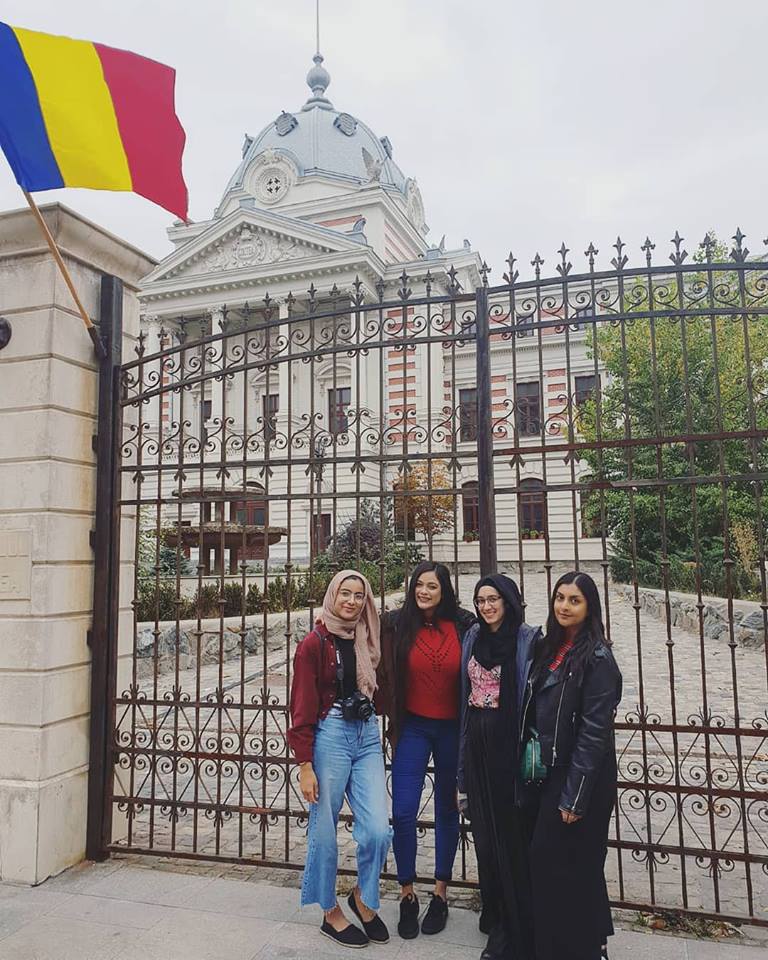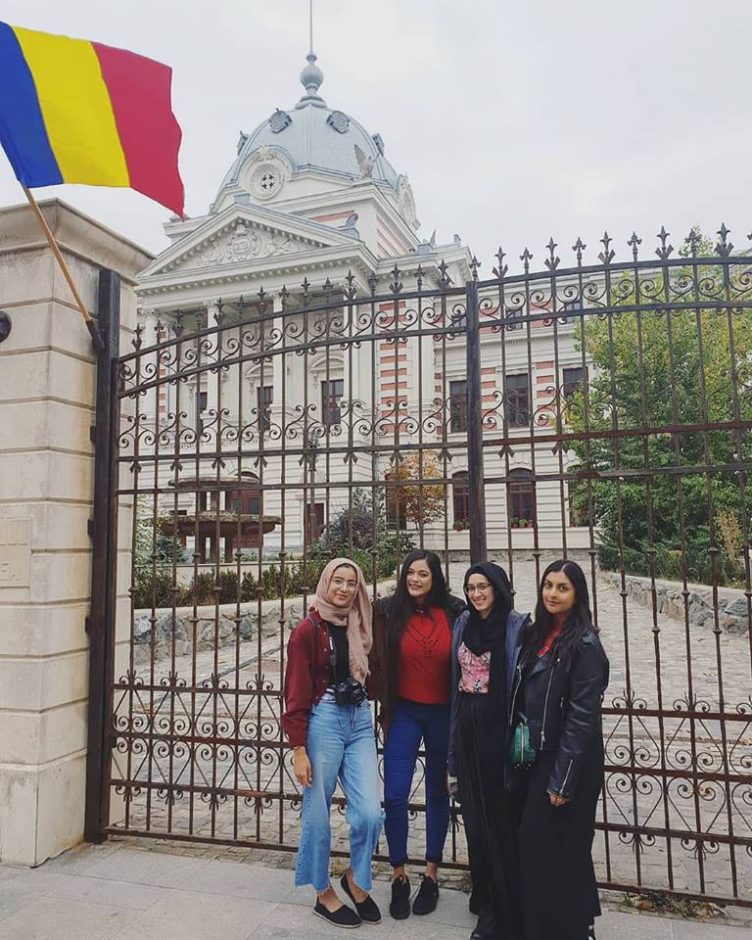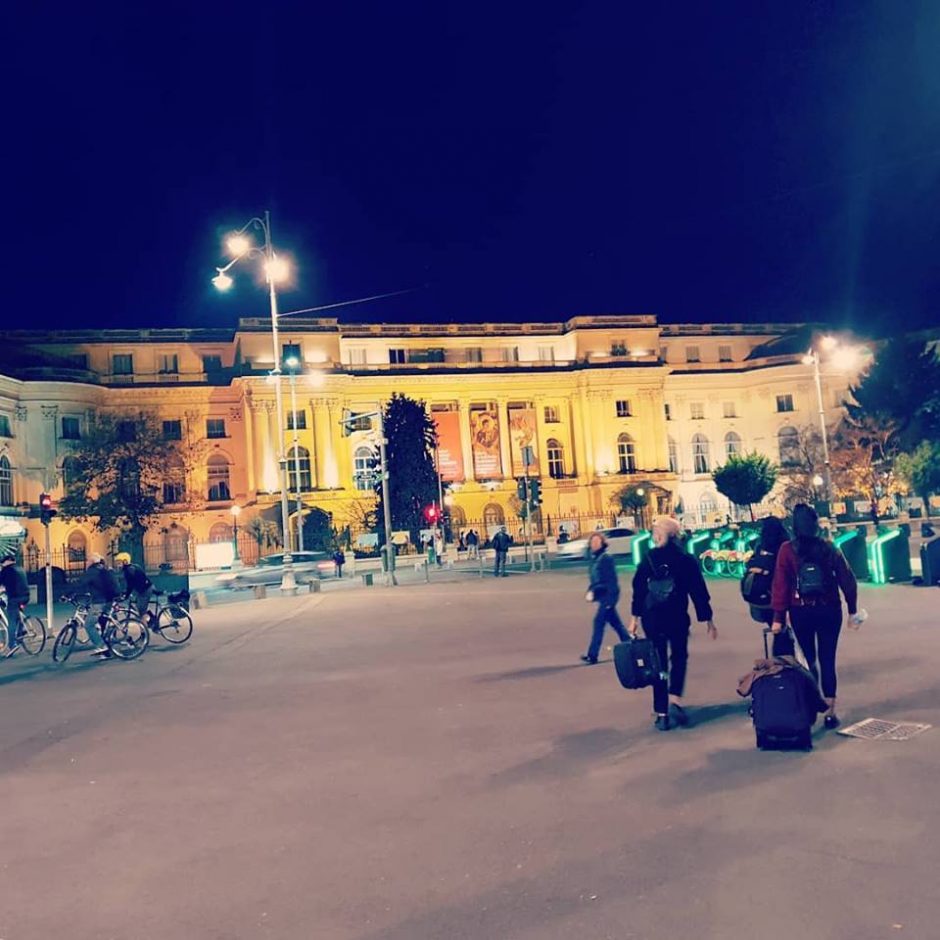A Week of Inclusive Youth Work in Romania!

The inclusive youth work project included youth workers and staff from diverse organisations learning about cultural inclusivity in Finland; LGBTQI+ inclusivity in Slovenia; disability inclusivity in Portugal and Roma inclusivity in Romania. Additional to the training experiences Interfaith Scotland has worked in partnership with the countries involved in the project to produce a website and materials to assist youth workers to be inclusive in their practice. In 2017 Interfaith Scotland held the training on being inclusive of Religion and Belief. The articles below from Interfaith Scotland staff and volunteers capture the experiences in Portugal and Romania.
In November 2018, I embarked on a week-long study visit to learn more inclusive youth work in Romania, as a representative of Interfaith Scotland. I was joined by three young women from Amina Muslim Women’s Resource Centre, Capability Scotland and FOSIS Scotland as Scottish representatives and the group was funded by Erasmus Plus (which we’ll unfortunately lose out on post-Brexit – I despair.)

As it was my first trip of this nature, I made a conscious effort to avoid reading up on the trip prior to the visit – I wanted to arrive in Romania intrigued, excited and energetic for the week ahead. The girls and I hit it off as soon as we arrived in Glasgow airport (luckily so, as we were all sharing rooms with one another!) and have built lasting friendships since. We met the rest of the group the following morning and the represented countries were Portugal, Finland, Slovenia, Romania and of course Scotland. The group were lovely and I enjoyed learning more about them as the week progressed – I have fond memories of exchanging stories from our respective countries, exploring the city together, visiting different restaurants and sneaking off for a McDonalds after when our orders got messed up, cringeworthy dancing, being told how much folk hoped Brexit could be reversed, selfies, late-night debates, banter at each other’s expense and endless laughter. One of the girls from Scotland has already stayed with a member from Slovenia over the New Year so the experience had definitely provided its fair share of lasting friendships.
Day one consisted of enjoyable icebreakers encouraging us to familiarise ourselves with the group, allowed us to learn more about the programme and about Romania itself. As the week progressed, we learnt more about some of the unique challenges facing youth work in Romania. We then visited Romania’s ‘social housing’ structure, designed for orphans. We were told of the EUs plans to disband orphanages in coming years, and that social housing acted as an alternative method for housing orphans which would better replicate the family environment; what made them so effective was that each home had only 6 children and maternal assistants who worked in shifts and were in place to build strong bonds with them. The house I visited had 6 Roma boys who were lovely, extremely boisterous and bursting with energy. We played games and exchanged conversation with them; what struck me the most was how each boy seemed to instantly fell in love with one of the guys from the group. They were climbing on his back as soon as we were through the door and fought with each other to hold his hand and sit next to him… It made me a little sad as I wondered if the lack of a father figure could explain this slightly erratic behaviour from the children (members of the group told us that some of the social housing they visited also had paternal assistants, so it may just have been these boys I visited who behaved in this way).

As the week progressed, we visited the only independent youth centre in Romania which could only be described as… cool. The smell of coffee hit you as you like a brick wall as you walked through the door into what I can only describe as an adult Disney Land. There were mountains of books and board games, a gorgeous fluffy cat and friendly dogs roaming around the property, a garden where Game of Thrones episodes were projected then later discussed and tonnes of food and sweets laid out for us. This was one of my favourite experiences of the entire trip – we had lively discussions where I witnessed probably the only occasion where every member of the group participated to share good practise and challenges facing youth work in their countries. We spoke a lot about religious influences and the how the role of the Church affected youth services in Romania. The youth workers were not fond of the Church’s conservative attitudes towards sex and told us this was a taboo subject they were not permitted to discuss with young people unless they brought it up. However, they did tell us that the Church played a key role in providing youth centres and spaces for young people throughout the country and were one of the only institutions doing so. We were also made aware of Romania’s huge problem with retaining young people throughout the country post-school, as they always seemed to move away at the earliest opportunity, profoundly impacting the country’s economy; the youth workers said it was a cultural problem.
During the week, we also drove to the outskirts of Bucharest to meet with some of the Roma community where we discussed key issues they faced. They told us about the intense discrimination the Roma community face in the job market and how this perpetuated the cycle of poverty in their community. They also told us that the areas they lived in the city were commonly regarded as ‘unsafe’ and that they wanted better opportunities for their young people. We then visited a school to meet with young people, and while the long drive had us miss most of the class, we got to speak to the young volunteer teachers and learn about their experience. After a few minutes of speaking to them (and reflecting on the stories of all the volunteers we met throughout the week in an array of roles), it became clear just how impactful the voluntary sector operated in Romania, particularly given the fact that they had attracted volunteer teachers from across Europe. We were quick to tell them how impressed we were by the voluntary culture in Romania, which far exceeded ours.
As the week drew to a close, we enjoyed free time to explore some of the beautiful parks and museums in Bucharest, then gathered for one final time as a group for a farewell dinner of entirely Romanian cuisine at a traditional restaurant in the city-centre. We reflected on the week, thanked the wonderful organisers Irina and Carmen for their smooth organisation and provided them with some feedback on the visit. I learnt a lot about some of the challenges Romania faces as a country, how different and similarly each country approaches youth work, how fortunate I was to grow up in Glasgow where I had access to multiple youth clubs, opportunities and could express myself freely, how Scotland as a country could make better use of volunteers based on some of the best practise I heard from the others, and just how lovely Romanian people (and children) are. It was a wonderful experience and I’d love to be involved again in the future; I would also definitely recommend Bucharest for a city-break to my fellow travellers out there!
